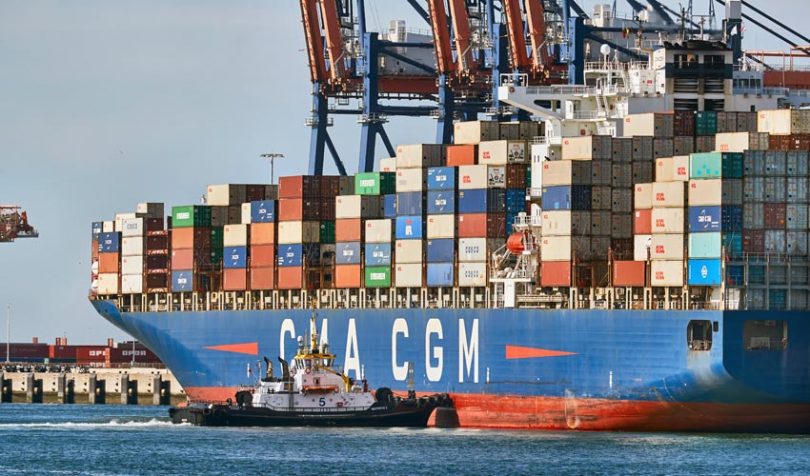The Port of Rotterdam announced it is piloting blockchain tokens for driver authentication during the container unloading process along with CMA-CGM, Hapag-Lloyd, MSC, ONE, and a few others.
Currently, the Rotterdam port uses a PIN code to authorize transport drivers collecting the container on behalf of the freight forwarder. However, this process is not foolproof as the PIN code is transmitted through numerous parties, from the shipping company to the freight forwarder to the transport company, increasing the risk of fraud. Additionally, errors in the PIN-based authorization may lead to delays and complaints.
Antwerp-based T-Mining is developing the blockchain application that would issue digital tokens representing the pick-up rights of the container. Transport drivers would be given clearance to collect the cargo after transferring the digital token at the terminal. Each token is unique to the container, and blockchain ensures that the authorization cannot be copied or tampered with.
Article continues …

Want the full story? Pro subscribers get complete articles, exclusive industry analysis, and early access to legislative updates that keep you ahead of the competition. Join the professionals who are choosing deeper insights over surface level news.






